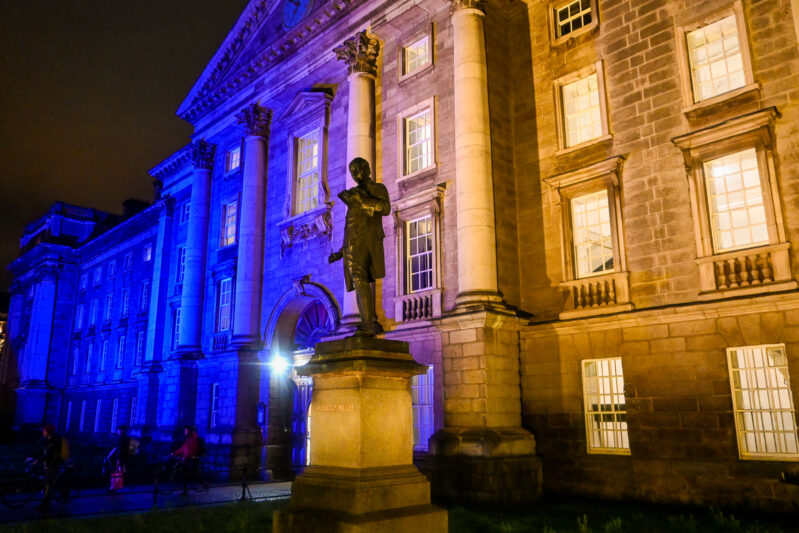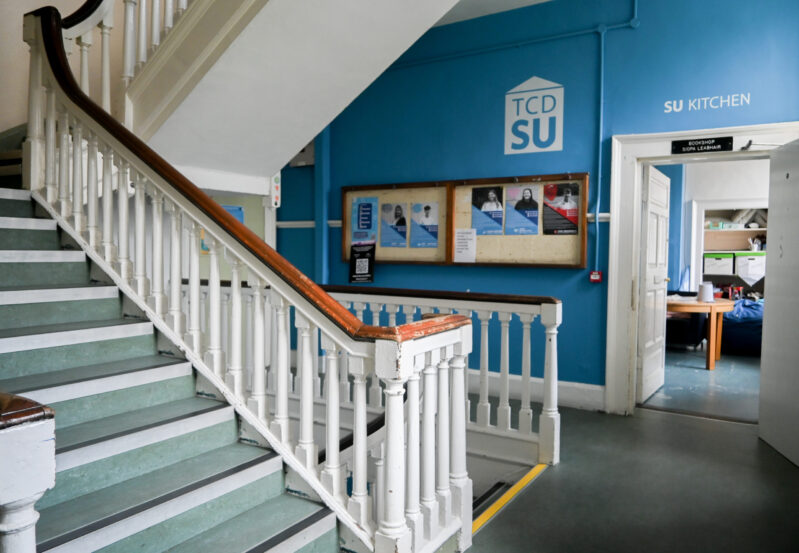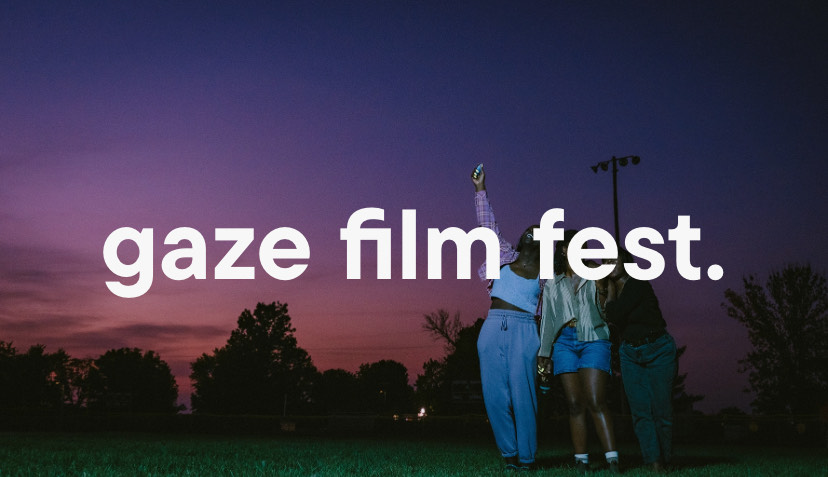Sitting across from me with a cup of tea and an extremely busy schedule is India O’Donohoe. She’s a senior freshman at Trinity College Dublin, studying single honours Philosophy in the Dual BA program with Columbia University. She also happens to be the president of the only European branch of The Women’s Network. My first question to her is what exactly is The Women’s Network. O’Donohoe explains that it’s a network that “focuses on ensuring women have equal standing to men when it comes to entering the workforce after graduating. It’s ensuring women can network both during their time at college with other women who are in similar fields or in completely different fields. The whole idea is just that it’s a space where women and gender minorities are able to network with each other and achieve a more equal foundation when it comes to entering the workforce”. The idea for the network was first borne by founder Jamie Vinick who was studying at the New York based Syracuse University where she realised, mid-lecture led by a banking executive, no one was asking the questions she wanted answers to, like gender and how women are treated in the workforce. The Network now boasts 120,000 members across US and Canada based universities.
O’Donohoe was reached out to by The Women’s Network who encouraged her to apply for the board for what would be the first and only European branch. Vinick herself interviewed O’Donohoe who shared her past experiences and what she envisioned for a Trinity branch of The Women’s Network. O’Donohoe had heard of the network through an American friend based at a US college with a branch and thought it was “really cool thing, Trinity is missing something like this”. In September 2023, O’Donohoe met with the secretary of the Central Societies Committee (CSC) to discuss the aims of the society. She was told that it sounded like a great idea in theory but the challenge comes in practice where there may be overlapping societies. In October, a constitution was written and 200 signatures were collected, gaining the society the official status of being “proposed”.
O’Donohoe speaks animatedly and fervently about the importance of such a society. She tells me what a wonderful way it is to make friends, especially with those outside of one’s course. She highlights plans for the future, providing the society is officially approved, including hopes to hold a panel with speakers from a variety of fields. She mentions specifically her hopes of giving a talk on Taylor Swift, mocktails, and hot girl walks. She points out the misconception that the network is only for those looking to pursue a career in business saying, “a career is anything from being an artist to a director to a business woman, whatever it may be. The Women’s Network tries to cover all of those fields”.
For now, there is a weekly email with a job board for opportunities in the United States as well links to virtual Women’s Network talks about topics such as financial planning. She tells me it’s her personal belief that the network is for “anyone who identifies as a woman or gender minority. It’s currently being proposed as an auxiliary society which means that it’s free to join and we intend to keep it that way”. This is another point O’Donohoe stressed to me that sets the Women’s Network apart from the many societies on campus – it’s free to join. She says: “Accessibility is so important and subsequently it’s one of those things where it’s like ‘why wouldn’t you join?’”
All that being said, O’Donohoe is careful to manage her expectations, given the society still must be approved by the CSC. She tells me that “the CSC have this idea that there are all sorts of different subcommittees and DUGES that all contribute to creating what the Women’s Network does”. She says that it is her personal opinion that this isn’t quite the case. She cites the inaccessibility of subcommittees as societies fees have to be paid in order to join them and the importance of being an auxiliary society, as evidenced by the fact that every other branch of the Network is free to join. She explains that it is quite a bit harder for a place like Trinity to have societies like the Women’s Network approved than it is in the United States where high tuition costs mean they have more funding for societies. She says that at Trinity it’s “a much more selective process because the funding is a lot more limited and every society is, as the CSC put it, a slice of the cake”. O’Donohoe also acknowledges that, though DUGES (Dublin University Gender Equality Society) enables conversations like gender equality, The Women’s Network is different as it focuses on networking during college and then providing assistance for entering the workforce.
O’Donohoe still doesn’t know the fate of the society. She says it’s “been a ride thus far” and that “there’s still a very real chance that the CSC go ‘look, thanks for trying but it’s not going to happen’”, despite her and the rest of the board’s hard work. She says she keeps in mind the importance of ‘if this happens’ and not ‘when this happens’, explaining, “there’s a sense of ‘this could all just fall out from under my feet’ and there’s so little that I’d be able to do about it” She and her likely vice-president, Ciana Meyers, have a three minute presentation to the CSC scheduled for Hilary term, which she feels will determine the fate of the society. She says she just wants the bare bones of the society set up before she is off to New York and she passes the society to someone she feels is equally as passionate as she is. She tells me her goals for the next one or two years is to get the society to a point where it’s well known on campus. She recalls her meeting with Jamie Vinick who said she hoped for a future where 80 per cent of the women and gender minorities on campus would know The Women’s Network, even if they didn’t want to be a part of it. O’Donohoe states: “The sky’s the limit but getting the foundations down is key. Even over the next year or so, that will still be the primary concern.”
For now, it’s a waiting game. Potential new members can subscribe to the weekly email list where O’Donohoe sends out relevant information as well as recommendations for her favourite spots around Dublin. The Network also has an Instagram, @TheWomensNetwork_TrinityCollgeDublin, where interest can be demonstrated. O’Donohoe seems peaceful when she tells me, “there’s a sense of what’s meant to be will be. I would say I’m cautiously optimistic. All I can do at this point is have my fingers crossed, work a bit over Christmas to make a decent presentation, and go at it with everything, and hopefully it pulls through”.
Personally, I’m keeping my fingers crossed as well as I think it would be quite a shame if this society was not given the green light to help the women and gender minorities of Trinity find equal footing after graduation.







